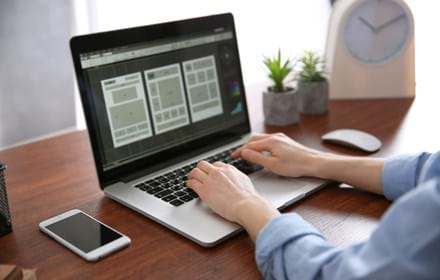
Creating an app to support people with diabetes
By Peter Lucas, Type 1 Diabetes
After being diagnosed with type 1 diabetes aged 27, Peter Lucas decided to start his own business, Hedia, an app which helps users stabilise blood sugar levels by providing insulin recommendations. In this story, Peter explains why he decided to start Hedia and his experiences of living with diabetes.
Diabetes is a part of my life – why should I have to hide it?
At age 27, my father was diagnosed with type 1 diabetes. A few decades later, I was diagnosed with type 1 diabetes also at age 27. Diabetes had been such a common dinner-time topic when I was a kid, and yet, when I started experiencing the first symptoms of diabetes it never even occurred to me what it was. My father would tell me about how he was first diagnosed; that he had lost weight rapidly, that he was drinking loads of water. Suddenly in my twenties, I was having the same experience. But I was just carrying on with life as normal, for several weeks (even with a trip to Malaga thrown in there). My girlfriend at the time (and now my fiancé) was, by chance, trained as a nurse specialised in diabetes. It was not until she directed me to see her at the hospital during her shift that it became clear that I had diabetes. My life changed from the moment the numbers appeared on the blood glucose monitor that night.
But then, why would I have thought I had diabetes? For people without diabetes, it’s not something you think about. You eat your lunch and carry on with life. You work out and carry on with life. Your thoughts are wrapped up in all your other concerns – working, planning events with friends, dating, and so on. That was exactly the case for me, especially since my thoughts were on the businesses I was running.

Accepting the changes in life
Now I had to accept that there were always going to be some extra decisions to make, and some extra issues to consider. I’m grateful that in some areas, there were some changes that weren’t difficult to adapt to: I’ve never had a problem with injecting in public, for instance. I’m sure that this is because I’ve seen my father injecting insulin since I was about seven years old. It’s a pretty normal sight for me. And I think this is the answer to people in general feeling more comfortable about insulin injections: being open about it. If more people had grown up seeing diabetes treatment like I had, then maybe the general attitude towards diabetes would be different. A great example of this is when the football player Ozan Kabak injected during half-time in front of the cameras. Those pictures went viral – it was great!
I don’t think my diabetes is anything to be ashamed of. I don’t want to have to take several minutes every day to hide myself – and mess up my blood sugar in the process – just for the benefit of others. I also realise that this opinion is not true for everyone – some people do have a hard time injecting in public. And I certainly have my own anxieties in other areas: I don’t want to use an insulin pump, even though I know that my HbA1c levels would probably be better with it. And yet, I still prefer using a pen. It’s a psychological thing; I just want to use a pen and be able to put it away afterwards, without being reminded of my diabetes.
Making those changes fit with my life
I’ve become a great deal more perceptive towards these different viewpoints on diabetes ever since I started my business, Hedia. I still remember very clearly the confusion and all the questions I had after my diagnosis. So, I decided to do something about it and create an app that would take away that confusion. There is no reason why we should have to feel that diabetes gets in the way of anything. If others can eat their lunch and carry on with life, then so should we. And that’s really the whole idea behind Hedia: just a few taps of a screen, and you’ll get an insulin recommendation (amongst other features), and then carry on with life.
Now that I work with diabetes, I’m extremely proud to share my story. I hope it inspires pride in others – whether that means feeling less ashamed about injecting in public or feeling that they will have control over their diabetes.




